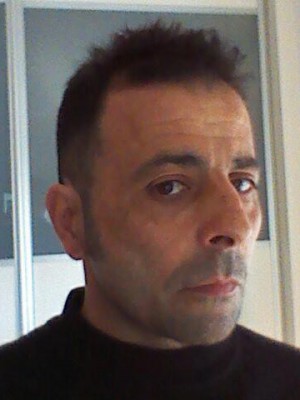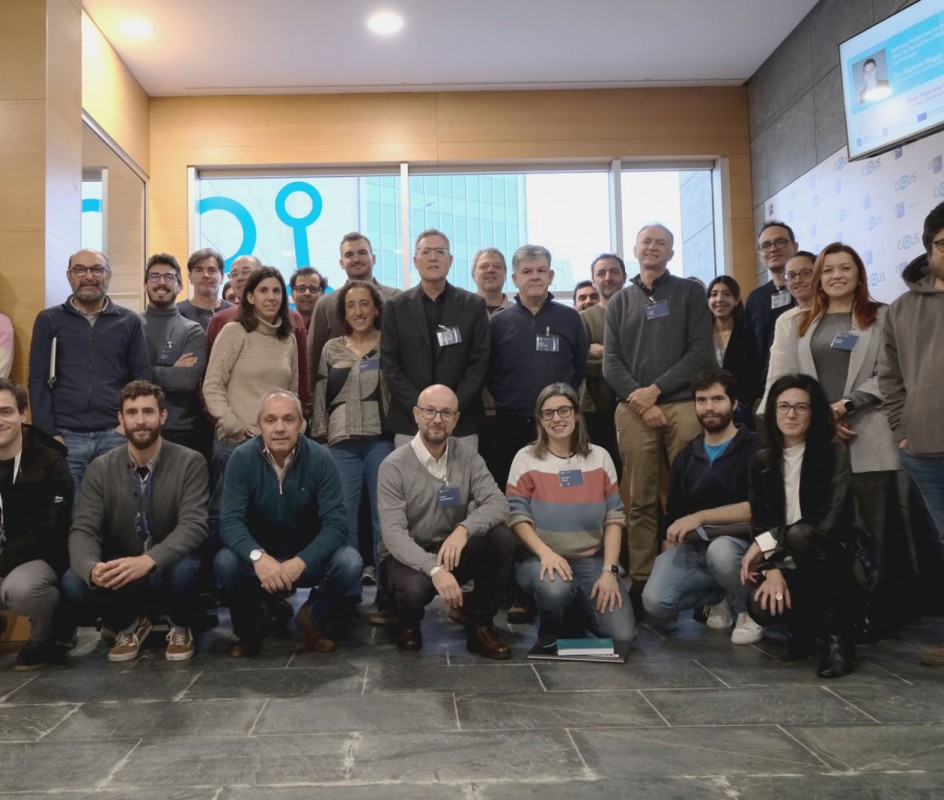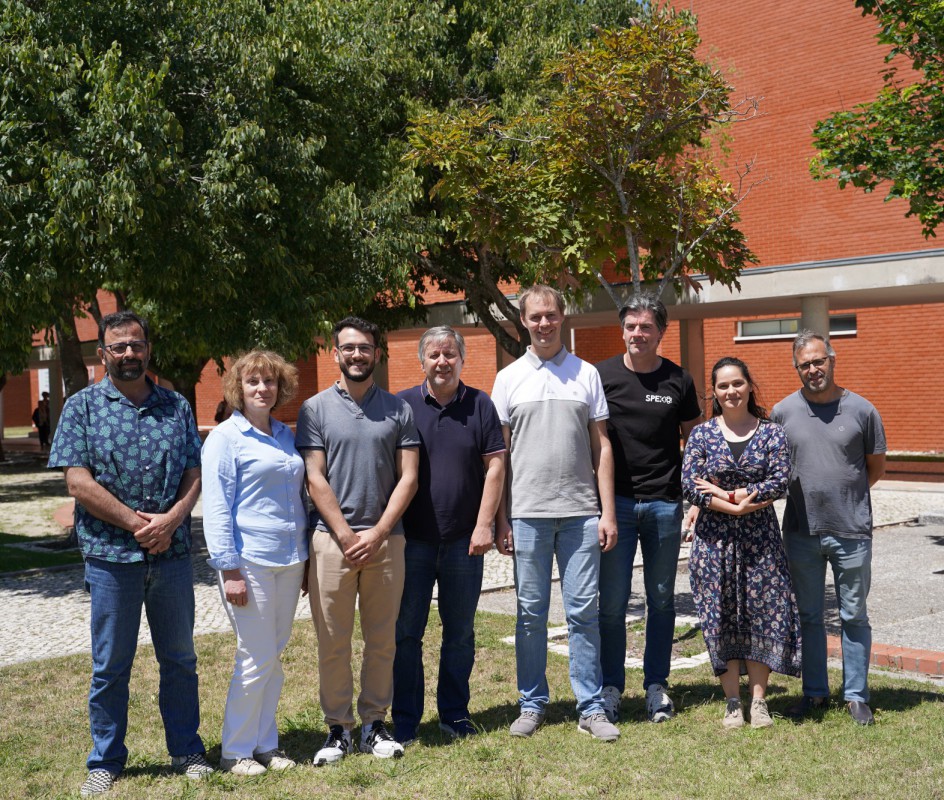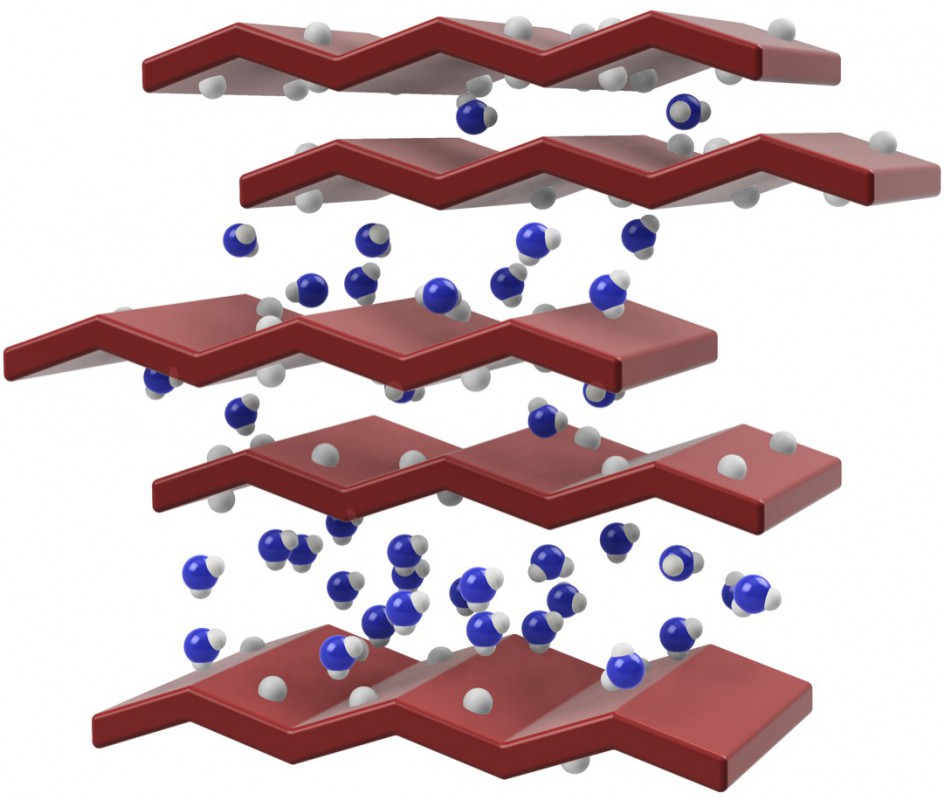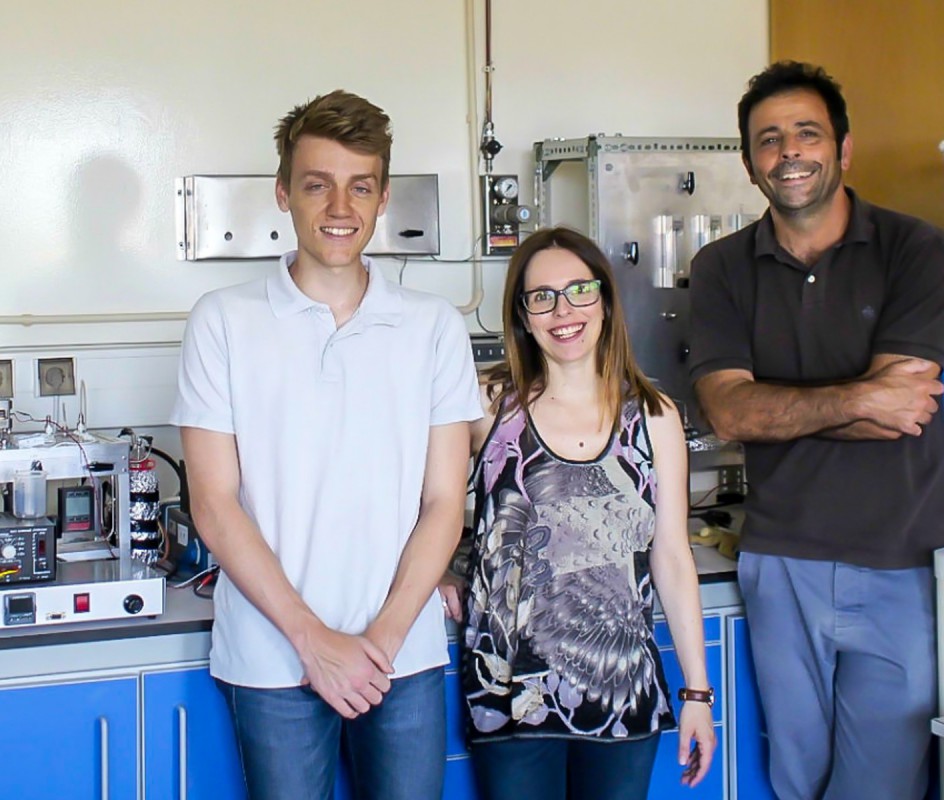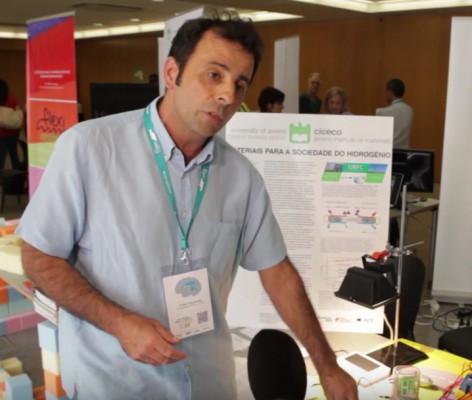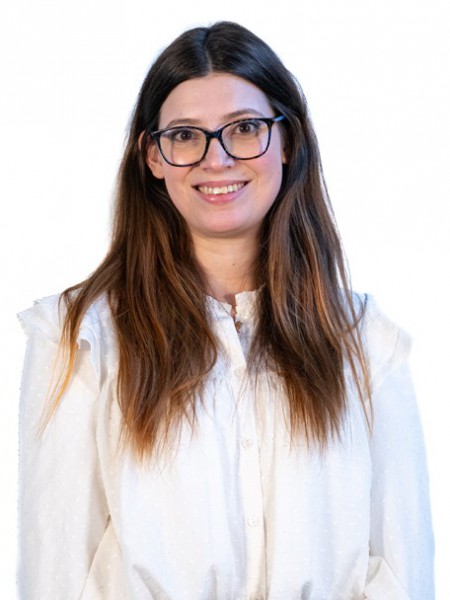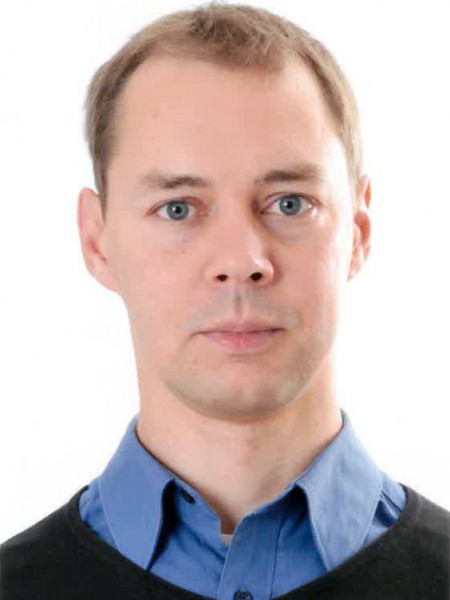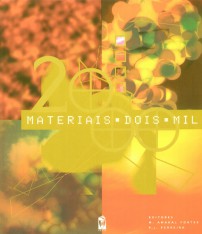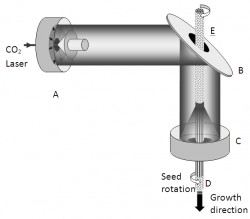Supervisões em Curso
Projectos
NGS - New Generation Storage (NGS (WP2-BPE4 PRODUCTION OF FLEXIBLE CELLS AND CELLULOSE))
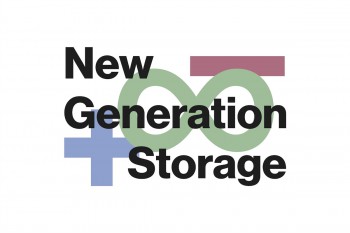
Coordenador LocalIndustry National
O Pacto de Inovação New Generation Storage (NGS) encontra-se completamente alinhado com a estratégia de transição energética da União Europeia até 2040, e o repto para a eletrificação completa da mobilidade até 2035. ...NGS - New Generation Storage (NGS (WP6-BPE19 - EDUCATION AND TRAINING ACTIONS))
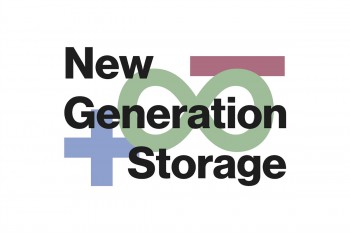
Coordenador LocalIndustry National
O Pacto de Inovação New Generation Storage (NGS) encontra-se completamente alinhado com a estratégia de transição energética da União Europeia até 2040, e o repto para a eletrificação completa da mobilidade até 2035. ...NGS - New Generation Storage (NGS (WP7-BP20 TECHNOLOGICAL PLATFORM))
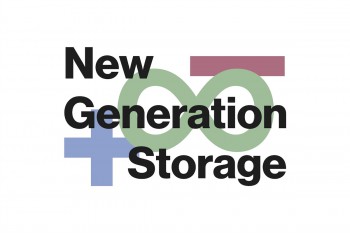
Coordenador LocalIndustry National
O Pacto de Inovação New Generation Storage (NGS) encontra-se completamente alinhado com a estratégia de transição energética da União Europeia até 2040, e o repto para a eletrificação completa da mobilidade até 2035. ...Cerâmicos com estrutura núcleo-concha e tamanho de grão nanométrico para aplicação em membranas de separação de oxigénio e produção de gás de síntese (POCI/CTM/59727/2004)
CoordenadorFundação para a Ciência e a Tecnologia
cerâmicos núcleo-concha perovesquites nanocerâmicos permeabilidade electroquímica oxigénioCeria-based electrocatalysts for low (<200 °C) and intermediate (500-650 °C) temperature fuel cells (Acção integrada Portugal-Argentina PO1404)
CoordenadorFundação para a Ciência e a Tecnologia
Degradacao em baterias de litio: abordagem por Microscopia de Zonda de Varrimento (LI-SPM)
ParticipanteFundação para a Ciência e a Tecnologia
Baterias de Li; Microscopia de Deformacao Eletroquímica; Microscopia de Forca por Sonda Kelvin; DegradacaoDesenvolvimento de cerâmicos condutores mistos electrónicos e protónicos para aplicação em membranas de separação de hidrogénio puro (PTDC/CTM/66243/2006)
ParticipanteFundação para a Ciência e a Tecnologia
condutores mistos separação de hidrogénio Ceramicos Ceratos permeabilidadeEmissão Zero de CO2: um desafio e uma visão para membranas funcionais inovadoras, multi-iónicas (CO2zero)
ParticipanteFundação para a Ciência e a Tecnologia
Hierarchical nanoestructures for lithium-ion batteries (PTDC/CTM-NAN/110776/2009)
CoordenadorFundação para a Ciência e a Tecnologia
Nanoparticles Nanostructures Assembly BatteriesMembranas de Celulose Bacteriana para células de combustivel de permuta protónica (EXPL/CTM-ENE/0548/2012)
ParticipanteFundação para a Ciência e a Tecnologia
celulose bacteriana celulas de combustível membranas de permuta protónica polimerização in situ/graftingMembranas Híbridas de Permuta Protónica para Aplicação em Pilhas de Combustível de Temperatura Intermédia (HYPEM) (PTDC/CTM-CER/109843/2009)
CoordenadorFundação para a Ciência e a Tecnologia
pilhas de cobustível membranas permuta protónica hibrido orgânico/inorgânico condutor protónicoNANOCELL - Electrólitos Nanocompósitos para pilhas de combustível de temperatura intermédia (PTDC/CTM/098486/2008)
ParticipanteFundação para a Ciência e a Tecnologia
nanocompósitos electrólitos cerâmicos pilhas de combustívelNanomateriais compósitos multifuncionais para pilhas de combustivel de baixa temperatura (NANOMFC )
ParticipanteFundação para a Ciência e a Tecnologia
electrólitos; pilhas de combustível; compósitos; transporte iónicoORIEL - Filmes finos de silicato de Latânio com Orientação Preferencial para Electrólitos de IT-SOFCs (PTDC/CTM-CER/118933/2010)
ParticipanteFundação para a Ciência e a Tecnologia
Lanthanum Silicate Ionic Conductivity Preferred Orientation SOFCPropriedades de transporte e aplicações electroquímicas de nanomateriais à base de céria (POCTI/CTM/39381/2001)
ParticipanteFundação para a Ciência e a Tecnologia
Nanomateriais ânodos ceria condução mistaUnirCell - Sistema combinado de célula de combustível/ electrolisador para fornecimento eficiente de enregia renovável: dos materiais ao dispositivo (SAICTPAC/0032/2015)
CoordenadorFundação para a Ciência e a Tecnologia
Energia; Hidrogénio; Pilha de combustível; ElectrolisadorPublicações
Acid-functionalised periodic mesoporous benzenosilica proton conductors
Domingues, EM; Salvador, MA; Ferreira, P; Figueiredo, FM
2012, SOLID STATE IONICS, 225, 308-311.
Ionic conductivity of eutectic mullite-zirconia fibres
Carvalho R.G.; Figueiredo F.M.; Silva R.F.; Costa F.M.
2012, Proceedings of 2012 21st IEEE Int. Symp. on Applications of Ferroelectrics held jointly with 11th IEEE European Conference on the Applications of Polar Dielectrics and IEEE PFM, ISAF/ECAPD/PFM 2012.
ISBN:
9,78147E+12
Assessment of the electronic conductivity of core-shell, Fe-doped LSGM ceramics by impedance spectroscopy
Gomes, E; Mather, GC; Figueiredo, FM; Marques, FMB
2011, SOLID STATE IONICS, 193, 1, 11-17.
Model of two-step sintering conditions for yttria-substituted zirconia powders (vol 126, pg 262, 2011)
Lourenco, MA; Cunto, GG; Figueiredo, FM; Frade, JR
2011, MATERIALS CHEMISTRY AND PHYSICS, 127, 1-2, 413-413.
Microstructure-property relations in composite yttria-substituted zirconia solid electrolytes
Fernandes, CM; Castela, A; Figueiredo, FM; Frade, JR
2011, SOLID STATE IONICS, 193, 1, 52-59.
Compositional and microstructural effects in composite electrolytes for fuel cells
Ferreira, ASV; Saradha, T; Figueiredo, FL; Marques, FMB
2011, INTERNATIONAL JOURNAL OF ENERGY RESEARCH, 35, 12, 1090-1099.
Intrinsic and extrinsic compositional effects in ceria/carbonate composite electrolytes for fuel cells
Ferreira, ASV; Soares, CMC; Figueiredo, FMHLR; Marques, FMB
2011, INTERNATIONAL JOURNAL OF HYDROGEN ENERGY, 36, 5, 3704-3711.
Model of two-step sintering conditions for yttria-substituted zirconia powders
Lourenco, MA; Cunto, GG; Figueiredo, FM; Frade, JR
2011, MATERIALS CHEMISTRY AND PHYSICS, 126, 1-2, 262-271.
Two-step sintering ceria-based electrolytes
Lapa, CM; de Souza, DPF; Figueiredo, FML; Marques, FMB
2010, INTERNATIONAL JOURNAL OF HYDROGEN ENERGY, 35, 7, 2737-2741.
Synthesis and characterization of composite electrolytes based on samaria-doped ceria and Na/Li carbonates
Lapa, CM; Figueiredo, FML; de Souza, DPF; Song, L; Zhu, B; Marques, FMB
2010, INTERNATIONAL JOURNAL OF HYDROGEN ENERGY, 35, 7, 2953-2957.
Heterogeneous doping of weak electrolytes with cerium oxide
Maria A. Salvador, P. Ferreira and F.M. Figueiredo
.
Acid-functionalised periodic mesoporous benzene-bridged organosilicas as proton conductors for intermediate temperature application
E.M. Domingues, M.A. Salvador, P. Ferreira and F.M. Figueiredo
.
Novel acid-functionalized periodic mesoporous benzenosilicas for intermediate temperature proton exchange fuel cell membranes
E.M. Domingues, P. Ferreira, M.A. Salvador, and F.M. Figueiredo
.
Heterogeneous doping of benzimidazole with nanocrystalline and mesoporous CeO2
M. A. Salvador, F.M. Figueiredo, P. Ferreira
.
Nanocasting of zirconium and cerium oxides
M.A. Salvador, J. Canales-Vázquez, P. Ferreira, F.M. Figueiredo.
.
Synthesis of mesoporous ZrO2 and CeO2 by nanocasting
M. A. Salvador , J. Canales-Vázquez, P. Ferreira , F.M. Figueiredo,
.
Acid functionalized periodic mesoporous benzenosilica proton conductors for intermediate temperature application
Eddy Domingues, Maria Adelaide Salvador, Paula Ferreira, Filipe Figueiredo
.
Nanocasting of mesoporous barium zirconate
T. Gadim, M. Salvador, P. Ferreira, F.M. Figueiredo
.
Nanocasting of mesoporous zirconia
Maria A. Salvador, J. Canales-Vázquez, P. Ferreira, F.M. Figueiredo
.
Acid-functionalised periodic mesoporous benzenosilicas for proton exchange membrane fuel cells
EM Domingues, MA Salvador, P Ferreira, FM Figueiredo
.
Preparation of mesoporous ZrO2 using SBA-15 as a hard template
Maria A. Salvador, J. Canales-Vázquez, P. Ferreira, F.M. Figueiredo
.
Synthesis of Periodic Mesoporous Benzenosilicas Containing Free Phosphonic Acid Groups for Application in High Temperature PEMFC
Maria A. Salvador, J. C. Alonso, P. Ferreira and F. M. Figueiredo
.


